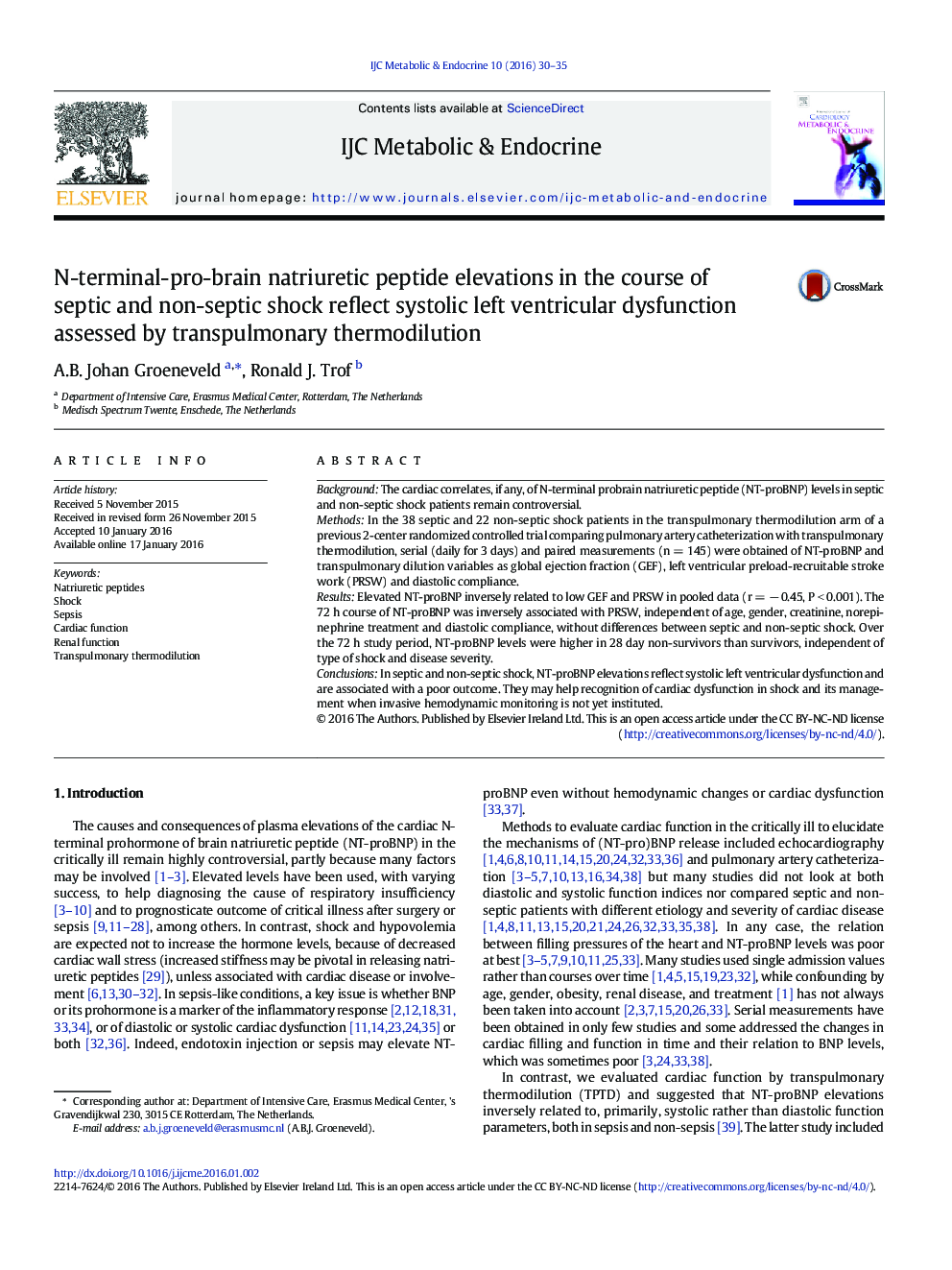| Article ID | Journal | Published Year | Pages | File Type |
|---|---|---|---|---|
| 2927168 | IJC Metabolic & Endocrine | 2016 | 6 Pages |
BackgroundThe cardiac correlates, if any, of N-terminal probrain natriuretic peptide (NT-proBNP) levels in septic and non-septic shock patients remain controversial.MethodsIn the 38 septic and 22 non-septic shock patients in the transpulmonary thermodilution arm of a previous 2-center randomized controlled trial comparing pulmonary artery catheterization with transpulmonary thermodilution, serial (daily for 3 days) and paired measurements (n = 145) were obtained of NT-proBNP and transpulmonary dilution variables as global ejection fraction (GEF), left ventricular preload-recruitable stroke work (PRSW) and diastolic compliance.ResultsElevated NT-proBNP inversely related to low GEF and PRSW in pooled data (r = − 0.45, P < 0.001). The 72 h course of NT-proBNP was inversely associated with PRSW, independent of age, gender, creatinine, norepinephrine treatment and diastolic compliance, without differences between septic and non-septic shock. Over the 72 h study period, NT-proBNP levels were higher in 28 day non-survivors than survivors, independent of type of shock and disease severity.ConclusionsIn septic and non-septic shock, NT-proBNP elevations reflect systolic left ventricular dysfunction and are associated with a poor outcome. They may help recognition of cardiac dysfunction in shock and its management when invasive hemodynamic monitoring is not yet instituted.
